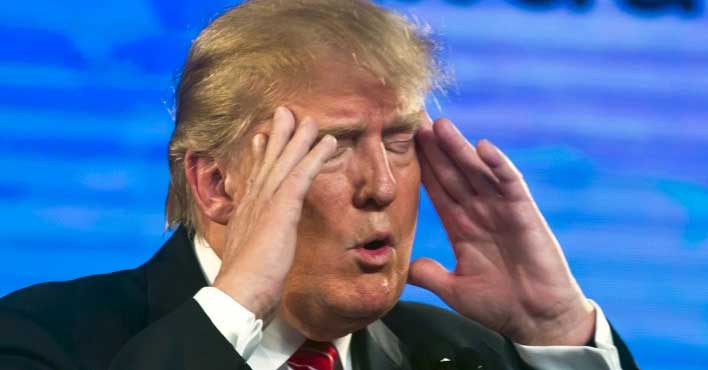Trump Criticizes China Like He’s on Some Talk Show
In the Thursday interview with Reuters, Trump also mentioned China when discussing the North Korean nuclear issue. He holds that if China “were willing, it could very easily” resolve the security challenge emanating from the DPRK.
Trump gives off a very strong impression: He practically relies on his imagination when discussing China. He seems to not understand China’s actual currency exchange policy, and is completely oblivious to the current Chinese foreign exchange control efforts and goals. He also appears to really have no clue as to the nature of China-North Korea relations.
It could be that Trump, seeing the Chinese trade surplus with the United States and the large volume of relatively cheaper Chinese products, and moreover, the significantly lower-value renminbi, feels that the renminbi is indeed being depressed. This is clearly some sort of imaginary economics; last year China sold off large amounts of its foreign currency reserves, and is not at all resigned to letting the renminbi slide. Trump’s criticism seems to be completely out of line with the world’s understanding of China’s currency exchange policy.
Regarding China-North Korea relations, at first glance, with China as big as it is and North Korea so small, clearly whatever the “older brother” says, the “little brother” has to listen. Many average Americans believe so. President Trump appears to be following the mainstream. Perhaps the White House ought to organize a “Central Study Group” [a reference to the historical Chinese Communist Politburo organ of the same name] and give the latest oblique criticisms against China most recently published by the Korean Central News Agency a read so it can see exactly how much “control” China has over North Korea.
Trump relies on impressions, imagination, and associated thoughts to guide U.S.-China relations, which is quite risky. It is probably too late for him to seriously and systematically communicate over the renminbi exchange rate with Treasury Secretary Mnuchin; he will just baselessly cast China as the “champion of currency manipulation.” There are some analysts who think the issue is bit more complex, with Mnuchin and Trump perhaps playing good cop, bad cop.
It is not just that one can randomly depress, control or manipulate currency exchange rates at will. Especially since the Chinese policy for a stable renminbi and to avoid further devaluation seems completely in line with Trump’s wishes, when he says Beijing is deliberately devaluing the renminbi, people everywhere are truly at a loss for words.
We believe that as the president of the United States, Trump should be much more circumspect in his criticisms of other nations. The White House is not a talk show. Every word Trump utters is seriously analyzed by journalists the world over, gripping pens in their hands. But everyone is realizing that the American president now says whatever he wants to say, not taking responsibility for the accuracy of his own words and speaking to his heart’s content, shocking the world. Thus, people do not know what is going on.
Trump has already criticized many other countries by name. What these criticisms actually mean in terms of international relations is the subject of intense inquiry among numerous countries, and public opinion is also quite bemused.
For a leader of a country to say whatever comes to mind in the complex world of great power politics — should reasonable people encourage such behavior? In time, international relations will tell.
China takes a serious attitude toward protecting the healthy development of U.S.-Chinese relations. Beijing generally gives due deference to Washington’s opinions. But China absolutely cannot fulfill unreasonable American requests. Beijing will never gouge out its own eyes for America’s well-being. If the U.S. insists on making such claims, then friction, if not outright antagonism, is destined to occur.
President Trump’s past business successes demonstrate his extraordinary ability, but even so, he needs to vigorously study up before entering into U.S.-China relations; nothing can be taken for granted. We are deeply affected by the discrepancy between his understanding of China and the responsibility he now bears. Given the importance of U.S.-China relations, this issue needs to be quickly corrected by the American system.


